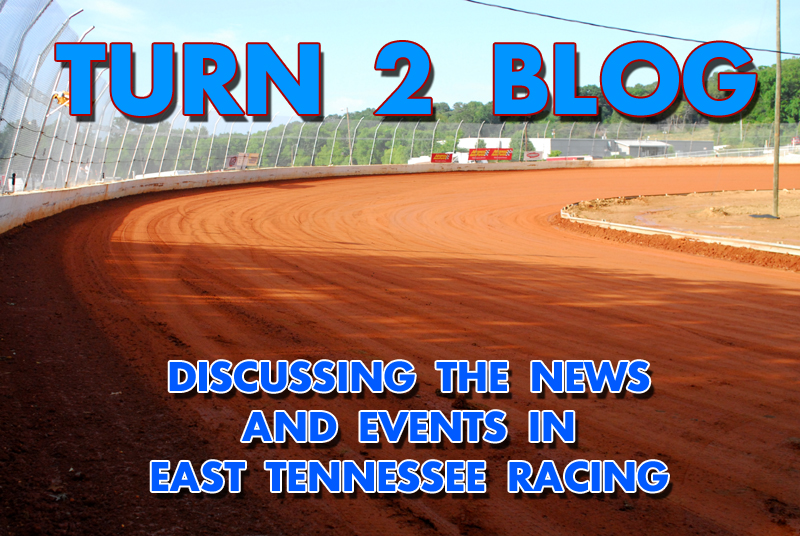Richard: This past weekend, track officials at the Smoky Mountain Speedway faced a tough decision prior to their scheduled World of Outlaws Late Models event. Light rain had fallen across the area early in the day and more was in the forecast for later. So, the race was ultimately cancelled.
But before we get going with our discussion, I want it to be made clear that the track owners agonized over this decision and did not want to call the race off. Based on the information they had, those in charge made the tough call they believed they had no other choice but to make.
Unfortunately, the information they had was bad and the predicted rain did not materialize.
This brings me to my ultimate point. In this modern age of technology, the forecast of rain has become more important in making race decisions than actual rain. Nowadays, if the “experts” who predict the weather call for precipitation on race day, fans and drivers start making other plans. In past years when news didn’t travel so fast, fans and drivers would come to the track and see what would eventually happen, but the price of fuel and the multitude of other things to do have made such a thing a relic of the past.
Michael: Situations like Saturday are why I’m glad I’m not a promoter. Around the time the call was made to cancel the race, the rain in the area appeared to have moved out. But it was still very cloudy and cool. The clouds finally gave way to sunshine, but there was no way of knowing that would happen when the call was made. It was a no-win situation.
There were a number of disappointed drivers and fans with the call, especially when the sun was shining nicely around 6 p.m. The drivers are disappointed because that’s one less payday for them and one less race for the fans to see, especially from a series that doesn’t visit this area that often.
Every promoter of a national touring race is taking a big gamble if the weather is not ideal. Purses, sanction fees, etc. are over $55,000, and that doesn’t include the purses for the other classes running that night. When the weather is nice, these races are guaranteed money makers. If the weather is not very good and the track decides to race, it could ruin a track’s season going from one of their guaranteed money makers to something that puts them in a big hole.
Richard: As frustrated as everyone was -and I mean everyone- when the race was called, no one wants to see a track put in financial jeopardy. Granted, there is no guarantee that the race wouldn’t have turned out to be profitable, but the odds of failure were greatly increased as area weather forecasters continued to post predictions of showers lasting as late as 8:00pm.
This brings me to an opportunity I have been waiting on for a long time, a chance to blast weather “experts”.
Have you noticed that since ESPN became a giant entity in sports broadcasting with their emphasis on spectacular highlights that the fundamentals of play in each sport have diminished? Baseball players strike out 200 times per year trying to hit 40 homeruns, etc.
In my opinion, The Weather Channel has done the same thing to forecasting. With that station’s emphasis on the catastrophic, local meteorologists make the most terrifying predictions they can based off every worst case model available to them. Remember back to this past winter and how many times we heard local TV and radio stations post warnings of several inches of snow. But when/if the snow came, it was far less than what was called for.
Unfortunately, racers and fans have no choice but to listen to these predictions. And when someone on the local news replaces words such as “spotty showers” with terms like “localized storms”, people imagine the worst.
Over the past couple of years I have noticed that races have been called off because forecasts left promoters with no choice, only to have little or no rain actually fall.
Sorry about the rant.
Michael: I have seen some strange instances with weather around racetracks in the past. I can remember one year at Atomic a small rain shower moved in. The track office had internet access and the radar was punched up on the computer. It showed a tiny cell of rain. We thought we’d back to racing within the hour. An hour later, it was still raining. The small cell had not moved at all. The motocross track saw their rain end 30 minutes earlier and they were back to racing while we stood there waiting out a rain shower. No weather person could have predicted that.
I think Smoky Mountain would have been better served calling off earlier when rain was still in the area. Waiting until 2:00 and then see the sun out a few hours later only ramped up the criticism. It was their money on the line, not mine.
Richard: The ultimate problem for any track when it comes to weather is that of credibility and reputation. Whether it be because of a bad forecast or any other reason, calling a race off when the perception of fans and competitors is that the race could have been run can hurt in the future. At the same time, running the race with no fans in attendance could do irreparable damage to the track’s bottom line.
Either way, it’s a no win situation. As I have said since Saturday, I’m glad I didn’t have to make the call. Had it been my call to make, I probably would have called it off as well based on the information at hand.






